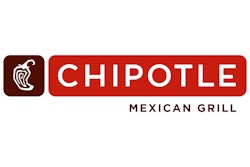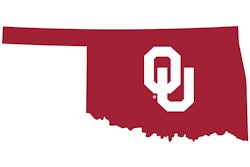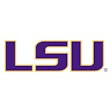Copyright 2014 Gannett Company, Inc.
All Rights Reserved
The approaching Super Bowl revives the annual battle between the NFL and economists over whether the game is a boon to host cities. Who's right?
On one side, you have the NFL. Last week, the league, as part of its non-stop hype-a-thon for the First Super Bowl Outdoors In Cold Weather, reported that the New York-New Jersey economy would see a $600million boost as a result of Super Bowl spending.
"Thanks to the Super Bowl, we're seeing more hotel rooms booked and restaurant tables reserved and even more excitement than usual for this time of year," U.S. Rep. Carolyn Maloney of New York told reporters.
On the other side, you have the nation's sports economists, who say the actual number is a fair bit lower. Like, maybe, zero.
"There still remains no ex-post evidence of an economic impact," says University of South Florida professor Philip Porter, almost audibly sighing via e-mail, because, as someone who has been studying this topic for more than a decade, he gets the same question every year at this time. "Super Bowl attendees simply don't buy much that the local economy sells."
So either more than half a billion dollars or bupkis. Definitely somewhere in there.
Given that this debate has been going on for eons, you'd think that we'd have reached a resolution by now. And it's an issue that matters tremendously: The reason the NFL puts out its numbers (other than self-aggrandizement and a desire to drive the latest concussion news off the front pages) is because cities spend big money to lure the big game -- not least by sinking hundreds of millions of dollars into the new stadiums that the league says are a condition of hosting -- and the supposed economic payoff makes writing those nine-figure checks go down a bit easier.
(In New Jersey's case, at least, the public got off relatively easy, as the New York Jets and Giants joined to cough up for construction costs with the help of their not entirely happy season ticketholders, though the teams still got to cash in on a pile of tax and rent breaks.)
We can't directly evaluate the NFL's $600 million impact claim, because the league hasn't revealed how it came up with the number. According to Super Bowl Host Committee public relations rep Alice McGillion, the figures are from a 2010 study by the Super Bowl bid committee that no one has gotten around to releasing in the four years since.
We do have the NFL's reports from past years, though, which show similar numbers. Last year's Super Bowl in New Orleans, for example, was estimated to generate $480 million in local spending, generating $34.9 million in new local tax revenue, according to the NFL host committee's study. Read that study, and we find that to arrive at this figure researchers simply surveyed Super Bowl attendees, asking them where they were from, whether they'd rented a hotel room, their total food expenses and so on, then applied a multiplier to account for how fan spending then got re-spent in the local economy.
You've probably noticed some potential problems here, beyond the dubious quality of survey results derived from asking drunken NFL fans how much they were spending on food. (Median answer: "WOOOOOO NINERS!")
First off, a big chunk of spending is on things like Super Bowl tickets and Super Bowl beers and Super Bowl lawn gnomes -- but most of the money for such branded items goes right back out of town once the Super Bowl leaves (except for whatever small sum is paid to the vendors selling these items). As Holy Cross professor Victor Matheson, another economist who has studied Super Bowl impact, puts it, "Imagine an airplane landing at an airport and everyone gets out and gives each other a million bucks, then gets back on the plane. That's $200 million in economic activity, but it's not any benefit to the local economy."
Then there's the issue of displacement. When hordes of Super Bowl visitors descend on a city's hotel rooms, that fills up all the hotel rooms, which means no more hotel rooms for anyone else. So people who might have visited New Orleans otherwise are forced to steer clear. (The NFL study tried to account for this by subtracting out New Orleans' lost convention business, but, as you might be aware, there are other reasons to visit New Orleans in the winter other than for a convention.)
In fact, because Super Bowl rooms are often required to be rented by the week but many visitors only show up for the game weekend, some economists have suggested that all those incoming NFL fans only end up displacing people who would have spent more, on average, during their time in town.
So what do non-NFL studies find? Matheson says his research shows an average impact of between $30 million and $120 million in overall spending, which is more than Porter's nothing but still a whole lot less than $600 million.
And as for how much of that actually trickles down to the host city, a study of the Super Bowl in 2004 by the University of Maryland's Dennis Coates found that Houston received about $5 million in added sales tax revenue thanks to having the game in town, a number that would likely be somewhat higher today thanks to inflation. (It would be higher still if not for the fact that the NFL's tax-exempt status allows its employees to avoid paying any local sales taxes for their dinners or hotel stays during Super Bowl week; in New Orleans, this amounted to $800,000 in lost sales tax revenue.)
There are some indications, according to these economists, that a New York-area Super Bowl could actually work out better than the average. For starters, as Maloney noted, the freezing weather is actually a plus as far as the economy is concerned, because February isn't peak tourist season in New York, for obvious reasons. Holding the Super Bowl in a more typical locale like Florida might make for toastier fans, but it's a waste from an economic perspective, because you don't need to twist people's arms to go to Florida in the winter.
New York also has more hotel rooms than God, which makes tourist displacement less of a worry, even before accounting for all the Super Bowl visitors who will end up staying on docked cruise ships. "You could reasonably go to New York for something other than the Super Bowl in three weeks," Matheson says. "It would be absolutely insane to do that in Indianapolis."
The essential problem with debates over economic impact studies is that they're way too easy to rig -- as a friend of mine who used to work in economic analysis recalls, clients would routinely ask him to come up with a methodology that would justify the desired result and to dress it up in a clear plastic binder.
So it's not entirely worthless to host a Super Bowl -- or a World Series, or an NCAA championship game, or a World Cup, or any of the other things that sports boosters are forever prescribing as the cure-all for any city's economic woes. Given the findings of the economic experts, it's probably not unreasonable to guesstimate perhaps $100 million or so of new money changing hands within the New York area during the first weekend of February and a few million of that trickling down to the public in the form of new taxes.
That sounds good -- until you realize that the state of New York alone will spend $5 million on advertising for Super Bowl-related events, leaving the only benefit as ... advertising New York City as a place that's brutally cold in the winter?
With economic strategies like these for NFL cities, the "concussionpocalypse" might turn out to be a blessing.
Terms and Conditions Privacy Policy



































